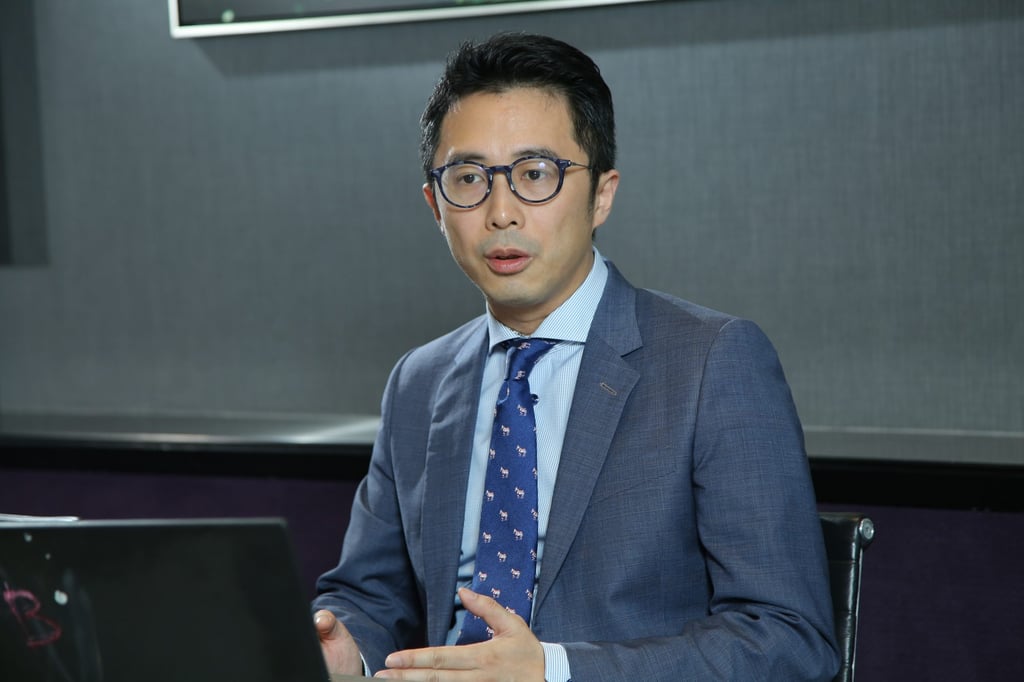Hongkongers stay ‘financially fit’ despite Covid-19 pandemic, new HSBC FinFit Study shows
- Bank’s FinFit study finds most people in city can control spending and pay bills, but those ranked ‘very fit’ have greater financial resilience
- It also reveals ‘very fit’ homebuyers save up for down payment on property nine years earlier than those ranked ‘unfit’

[Sponsored article]
Hong Kong residents have remained financially resilient by controlling their spending and settling bills and credit card repayments on time, despite the Covid-19 pandemic’s effect on their incomes, a new study shows.
Saving habits dropped 7 percentage points to 61 per cent, with only about a third of those surveyed using financial products to grow their assets over the previous six months – a drop of 12 percentage points compared with the previous survey covering the second half of 2020.
The latest study, carried out in November to assess the financial habits, knowledge, planning and cybersecurity and safety awareness – the four key pillars of financial fitness – of Hongkongers aged 18 to 64, saw them score an average of 65 out of 100. This was largely unchanged from the average of 66 in the previous 2020 study.
Most people – 61 per cent of respondents in the latest study – were ranked financially “moderately fit”, based on a score between 50 and 80, up from 54 per cent previously.
Only 20 per cent were ranked as “very fit”, with a score between 80 and 100, while the remaining 19 per cent were ranked “unfit”, with scores of below 50.
“Being financially fit means being equipped with the right financial knowledge and financial habits to effectively manage your money,” says Brian Hui, HSBC’s head of customer propositions, international and marketing, wealth and personal banking in Hong Kong.
“It is the key to feeling confident and competent in making financial plans to achieve your life goals.”

The survey found that those people who were “very fit” were more resilient when facing an economic downturn, and more likely to bounce back when conditions improved.
It also showed that 55 per cent of those who were deemed “very fit” have felt happier over the past six months, compared with only 19 per cent of those who were “unfit”. Only a third of people in the “very fit” group had worried about their financial position, compared with nearly two-thirds in the “unfit” group.
Hui says robust financial fitness offers resilience in times of adversity, adding that the bank is committed to helping people in Hong Kong lead a better life financially.
‘Very fit’ save up nine years faster for homes
The study showed the benefits of being financially fit were particularly pronounced among those Hongkongers saving up to buy a home. Those people who were financially “very fit” took an average of 13 years to save up for a deposit – nine years earlier than the 22-year average it took those who were “unfit”.
They were also nearly five times more likely to avoid investment losses than those who were “unfit”.

Becoming financially ‘very fit’
Just like building strong physical health, becoming financially fit requires commitment and continuing effort to create good habits that show positive results over time.
The HSBC study suggested that financially “very fit” people started to invest at an average age of 27, three years earlier than those who were “unfit” – which enabled them to benefit from compound returns over this extra period.
The financially “very fit” were also found to share a number of common characteristics that gave them a better chance of achieving their financial goals. These included being more mindful of their personal spending, reviewing their financial plan more regularly, holding a more diversified investment portfolio with different asset classes, and being more likely to have insurance protection.
It also revealed that four out of five people who were “very fit” sought investment advice from professionals, whereas the “unfit” relied more on their families and friends to learn about financial products and services.
Overall, 88 per cent of the financially “very fit” people used multichannels – physical networks and digital banking – to gain access to banking and wealth management services, allowing them to be more productive and make the most of their banking needs at any time and from anywhere.
Empowering customers’ financial habits
Hui says not all consumers have the necessary financial habits to achieve their financial goals, or an understanding of what long-term financial planning should look like.
“HSBC aims to help customers build financial literacy by providing a balanced range of services to customers, which includes offering a more personalised banking experience that helps them take control of their money,” he says.

HSBC’s FinFit initiatives, including the launch of the HSBC FinFit Study in 2020, have seen the bank win a silver medal at the Investor and Financial Education Award 2021, organised by Hong Kong’s Investor and Financial Education Council.
The study combines external surveys and internal customer data with algorithms to identify areas in which customers are weak in financial management. The bank then uses this information to develop education strategies for customers.